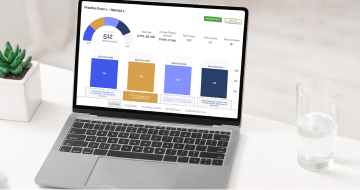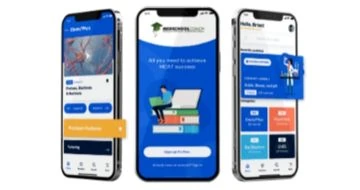Depressive Disorder & OCD
MCAT Psychology - Chapter 4 - Section 2 - Psychological Disorders - Types of Psychological Disorders
- Home
- »
- MCAT Masterclass
- »
- Psychological, Social, and Biological Foundations of Behavior
- »
- Psychology
- »
- Depressive Disorder & OCD – MCAT Psychology
Sample MCAT Question - Depressive Disorder & OCD
Compulsions are repetitive, senseless _____ that cause _____ from obsessions.
a) thoughts; behaviors
b) behaviors; temporary relief
c) thoughts; anxiety
d) behaviors; anxiety
B is correct.
Compulsions are repetitive, senseless behaviors that bring temporary relief from obsessions. A and C are incorrect. Compulsions are behaviors, not thoughts. D is incorrect. Compulsions are anxiety-relieving, not inducing.
Get 1-on-1 MCAT Tutoring From a Specialist
With MCAT tutoring from MedSchoolCoach, we are committed to help you prepare, excel, and optimize your ideal score on the MCAT exam.
For each student we work with, we learn about their learning style, content knowledge, and goals. We match them with the most suitable tutor and conduct online sessions that make them feel as if they are in the classroom. Each session is recorded, plus with access to whiteboard notes. We focus on high-yield topics if you’re pressed for time. If you have more time or high-score goals, we meticulously cover the entire MCAT syllabus.
Major Depressive Disorder & OCD for the MCAT
In order to score well on the MCAT, it is crucial to familiarize yourselves with the various mental health disorders. Two significant disorders that’ll be covered in this post are major depressive disorder (MDD) and obsessive-compulsive disorder (OCD).
Major depressive disorder is a prevalent mood disorder characterized by persistent feelings of sadness, loss of interest, and a range of physical and cognitive symptoms. On the other hand, OCD (obsessive-compulsive disorder) is a chronic anxiety disorder marked by intrusive thoughts (obsessions) and repetitive behaviors (compulsions) aimed at reducing anxiety. In this post, we will dive into the symptoms of both disorders more, thus developing a strong foundational understanding of these disorders as you prepare for the MCAT.
What Is Major Depressive Disorder?
To begin, you should know that depressive disorders are mood disorders characterized by periods of sadness and depressive mood without episodes of mania. The last part of the definition “without episodes of mania” is really important. This is because patients who experience both depressive episodes and manic episodes have bipolar disorder, not a depressive disorder. This means that individuals who experience depressive episodes do not necessarily have depressive disorder. They must have experienced depressive episodes without manic episodes to have depressive disorder.
You should know that there are several types of depressive disorders. In major depressive disorder, individuals experience major depressive episodes, which are persistent feelings of sadness and despair. Because it’s described as major, the symptoms are quite severe. This contrasts with other depressive disorders such as dysthymia, which is also called persistent depressive disorder. Individuals with dysthymia also experience sadness and despair, but over a longer time period and with less severe symptoms.
What Are the Symptoms of Major Depressive Disorder?
The symptoms of major depressive disorder can be characterized as emotional, behavioral or cognitive. Emotional symptoms include dysphoria, which is the opposite of euphoria and is the feeling of unease and discontent. It also includes anhedonia, which is the loss of ability to experience pleasure. An example would be a person who usually really enjoys running, but, with anhedonia, when they run, they no longer experience pleasure. A sense of hopelessness is also an emotional symptom.
Behavioral symptoms include insomnia. Individuals with insomnia have a tough time falling asleep or staying asleep. Behavioral symptoms also include fatigue or loss of energy and social withdrawal. Individuals suffering from these symptoms stop interacting with other individuals or try to avoid those interactions. More behavioral symptoms include attempted suicide and decreased or increased appetite that results in significant weight loss or weight gain. Cognitive symptoms include excessive worry, feelings of worthlessness, inappropriate guilt, suicidal thoughts, and decreased ability to make decisions.
While there are many different symptoms, an individual with major depressive disorder doesn’t have to have all of these symptoms to be diagnosed. For the MCAT, you do have to be able to associate these symptoms with major depressive disorder.
What Is OCD?
OCD was originally categorized as an anxiety disorder, but now, in the DSM-V, it was given its own category. From its name, obsessive-compulsive disorder, it should make sense that this disorder has two components: obsessions and compulsions. Obsessions are recurrent and intrusive thoughts that prompt the individual to engage in senseless rituals called compulsions. A common example is a person who is obsessed with the thought that their hands are covered with dirt and there are germs. This obsession causes the individual to keep washing their hands repeatedly. In this case, the obsession is the thought of contamination on their hands, and the compulsion is the repeated washing of hands.
Common Obsessions & Compulsions in OCD
Common obsessions of individuals with OCD include fear of contamination (germs or dirt), unwanted thoughts about sexual acts or inflicting harm on others, and doubts about completing certain tasks. An example would be individuals who have the obsession that they forgot to turn off the stove. The obsession is doubting if they turned the stove off, and the senseless ritual, or compulsion, they keep performing repeatedly is checking the stove to make sure it has been turned off.
Common compulsions include repetitive hand washing, cleaning, checking, ordering of items, and hoarding. Now we all have experienced these obsessions and compulsions before. There are probably instances where you’re like, “Oh no, I forgot to turn off this appliance!” and you ran over to check it. These simple instances do not indicate that you have OCD. Obsessive-compulsive disorder is more severe; therefore, the symptoms are much more distressing and time consuming. Individuals with OCD might lose an hour or more of their day to these obsessions and compulsions, and their symptoms also interfere with daily life.
The last thing you should know about OCD is that males and females are affected equally.
Explore More MCAT Masterclass Chapters
Take a closer look at our entire MCAT Masterclass or explore our Psychology lessons below.

One-on-One Tutoring
Are you ready to take your MCAT performance to a whole new level? Work with our 99th-percentile MCAT tutors to boost your score by 12 points or more!
See if MCAT Tutoring can help me
Talk to our enrollment team about MCAT Tutoring

MCAT Go Audio Course
Engaging audio learning to take your MCAT learning on the go, any time, any where. You'll be on the way to a higher MCAT score no matter where you are. Listen to over 200+ lessons.

MCAT Practice Exams
Practice makes perfect! Our mock exams coupled with thorough explanations and in-depth analytics help students understand exactly where they stand.

MCAT Prep App
Access hundreds of MCAT videos to help you study and raise your exam score. Augment your learning with expert-created flashcards and a question banks.